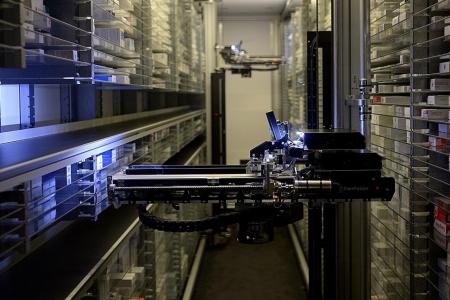Workplace use of automation to double: Survey
But machines, robots will not replace humans, with companies urged to address growing challenges
The use of automation in workplaces here will start to skyrocket, a new survey found.
It found that automation is expected to account for an average of 29 per cent of all work done by companies over the next three years.
This is a stark increase from the current rate of 14 per cent, and 7 per cent three years ago.
The survey also noted that firms see the main goal of technology - such as artificial intelligence and robotics - as improving human performance and productivity.
"It is important to note, though, that while we will see an increase in machines and robots in the workplace, they will not replace humans," said Mr Darryl Parrant, talent and rewards leader, Singapore, at Willis Towers Watson, which carried out the survey.
"Instead, the benefits of automation will increase workforce and workplace flexibility, change the way work is performed and reduce costs."
But he noted that not all of the organisations polled were ready to address the growing challenges that automation brings.
ROBOT TRAINERS
New jobs such as robot trainers will be coming to the fore, so Willis Towers Watson suggests firms deconstruct existing positions based on their component tasks and identify those that can be automated.
Firms can then seek out those with the right capabilities for the tasks they need to perform.
Roles that require digital-focused skills - such as data mining, financial technology, digital marketing and cloud computing - are in high demand, with 57 per cent of companies here expected to pay higher salaries for such employees.
The survey also noted that 53 per cent of employers globally plan to take steps towards addressing talent deficits through workplace action.
It found that 45 per cent are assessing talents to identify "skills and wills" gaps, and 44 per cent are identifying the emerging skills required for the changing business environment.
This may bode well for employees in Singapore as government-driven initiatives such as SkillsFuture are focusing on upskilling staff, Willis Towers Watson said.
At the same time, the move to automation will also enable flexibility and create new opportunities to draw from alternative labour pools to fill in the skills gaps, it added.
Interestingly, the survey found that less than 10 per cent of organisations globally are actively taking steps to prepare for these organisational changes.
The Willis Towers Watson survey was conducted in November and polled 909 companies worldwide, including 507 from the Asia-Pacific. - THE STRAITS TIMES
Get The New Paper on your phone with the free TNP app. Download from the Apple App Store or Google Play Store now



